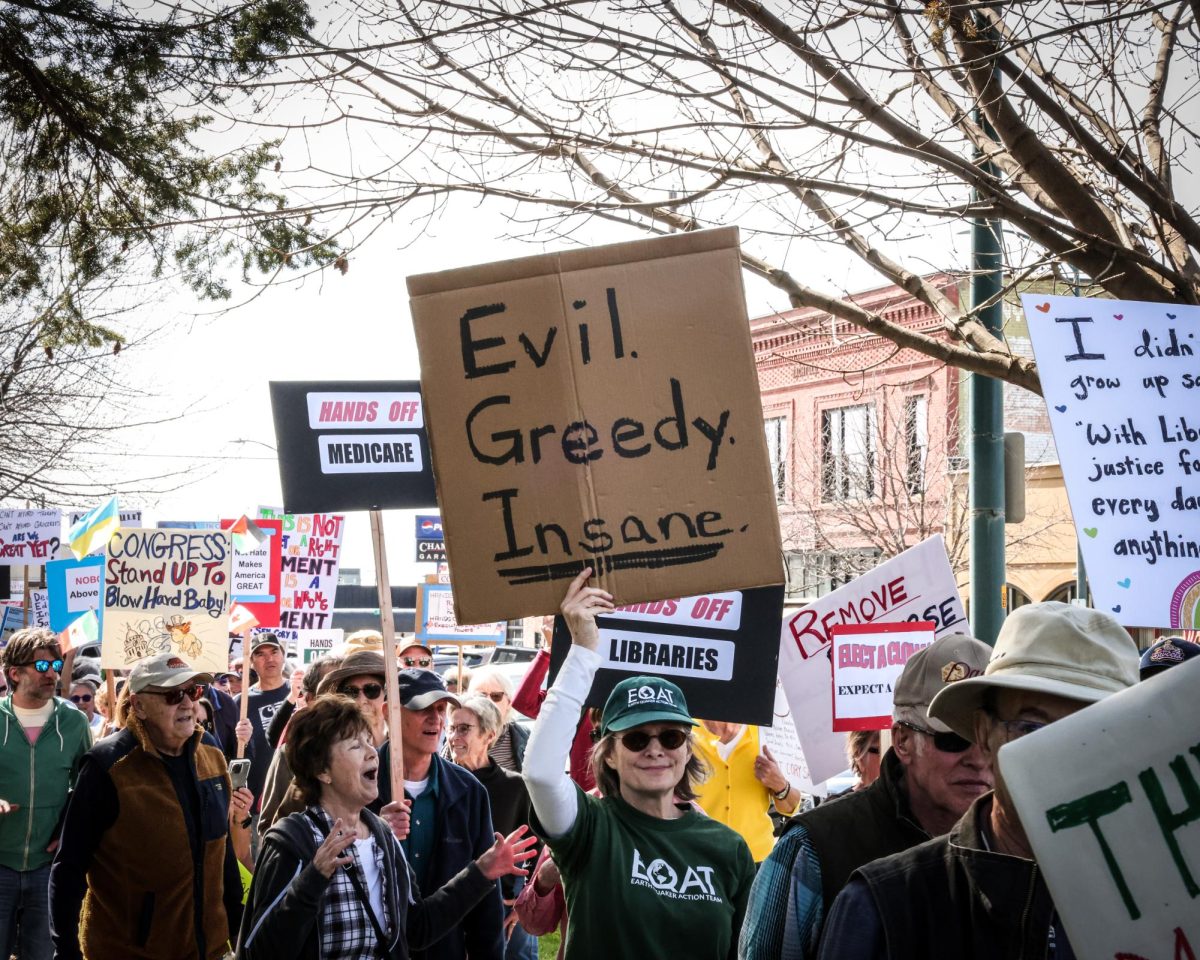In recent weeks, the Trump administration’s contentious immigration policies have forced deportations and ICE operations to come into international spotlight. Reports are circling of ICE officers making arrests across the country and recently reaching the Tri-Cities area. The federal crackdown on undocumented immigrants has raised concerns across the globe. However, in Walla Walla, Washington, state law and established departmental policy might assist in creating a buffer between federal immigration enforcement and everyday policing. Despite this, immigrant families and students fear arrest, separation and deportation.
Under Washington State law — specifically RCW 10.93.160 — all police departments in the state of Washington are expressly forbidden from inquiring into an individual’s immigration or citizenship status, this applying to both the convicted and the victim. Nick Loudermilk, administrative sergeant at the Walla Walla Police Department confirmed that this legal framework is the backbone of the Walla Walla Police Department’s (WWPD) approach.
“We treat everyone the same, regardless of their given immigration status. Our focus is solely on the crime at hand. We are here to help the people, regardless of who the victim is or who commits the crime” Loudermilk said.
This clear differentiation means that despite the Trump administration’s rhetoric and policy shifts, local police officers will likely not be co-opted into federal immigration efforts.
Although the Walla Walla Police Department will not directly report anyone to the ICE, they are equally bound by federal law from interfering in ICE operations. Loudermilk emphasized that local involvement is strictly circumscribed by federal laws.
“We can’t stop them from doing their own thing if they come into town. They’ll give us a courtesy call to let us know that they’re operating here, but ask that we’re not gonna be involved because state law prohibits us from doing so,” Loudermilk said. “We don’t get in the way of the ICE operation. We would tell the person that was reporting that they have to make a complaint to the federal law enforcement agencies because we wouldn’t have any jurisdiction over the federal agencies like the ICE.”
ICE Operations in Tri-Cities & the Impact on Local Residents
Despite the WWPD’s non-involvement in immigration enforcement, ICE operations continue to intensify nearby, including in Yakima and Tri-Cities. A Walla Walla resident, who asked to remain anonymous due to fears of deportation, talked about a recent incident in which ICE conducted arrests near her family’s home.
“My brother in law witnessed them take people away, we are not sure if they had warrants, but they came in unannounced and arrested a lot of people from a communal living space. He was too scared to even look out the window for too long because he is undocumented himself and knew ICE was right there in his neighborhood,” said Rosia.*
Many fear that these raids could expand, pulling more undocumented residents into federal custody, regardless of their contributions to the community.
The Trump administration’s “MAGA” policies and dislike for groups labeled as ‘unvetted’ and ‘dangerous’ have led to a dramatic increase in deportations nationwide. ICE’s activities have raised tensions amongst immigrant communities about the certainty of their future and safety.
“It’s not just about being sent back. I am worried that if I am sent back or worse, put in a detention camp, will I even be able to contact my kids? People are taken away, and their families don’t know where they are. Some are locked in facilities where they lose hope completely, that is what I am worried about. Not so much about being sent back,” said Rosia.
This sentiment is echoed by many other individuals across the nation who fear being placed into detention camps and not knowing what to do.
Fear and Uncertainty Among Immigrant Families
While state protections provide a measure of relief, many in Walla Walla still live in fear. For many, the federal government’s escalating deportation policies have resurfaced old traumas and raised questions about their safety. A Whitman College student who requested to remain anonymous for fear of deportation shared her experiences with deportations in her family.
“I don’t think any child or parent should have to go through that fear. I remember when my uncle was deported six years ago and I was just a kid crying in my room, terrified — what if it happened to my parents next?” said Daira.*
Even though local police do not actively participate in ICE operations, fear lingers within the immigrant community. Many people worry that interacting with law enforcement, or any public platform in general could expose them to ICE detainment. For those in mixed-status families, where some members are citizens while others are undocumented, this fear is particularly pronounced.
“Even if the police say they won’t ask about immigration status, federal policies make people too scared to report anything. My mom has been in the U.S. for 22 years, paying taxes and following every law, but she still wakes up every day wondering if she’ll see her kids again,” said Daira.
Many first generation students feel that even though ICE’s official mission is to remove individuals who pose a “threat,” their actions often target hardworking families who have built their lives in the U.S.
“I grew up here thinking this country was supposed to welcome everyone. I was taught about the ‘American Dream,’ but now I realize it was just that — a dream. The way people treat me has changed. I’ve been told to ‘go back to my country,’ but this is my country. I was born here,” said Daira.
These emotional responses reflect a larger crisis of identity for many first-generation Americans who feel that their place in the U.S. is constantly questioned.
The federal policies aggregated by the Trump administration have the potential to ripple through even communities like Walla Walla in less direct ways. While local police are insulated from federal immigration enforcement, the effects of heightened federal activity — such as increased fear and potential marginalization of immigrant communities — continue to impact the lives of many.
*Editor’s Note: Some sources have been granted anonymity due to fear of deportation or other legal retaliation against their immigration status. These sources have been given pseudonyms, indicated by an asterisk.




